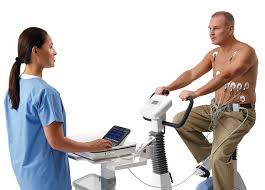TMT Test Bangalore: Everything You Need to Know About the Procedure, Cost, and Benefits
The TMT test Bangalore is one of the most common diagnostic procedures for assessing heart health. It helps to detect coronary artery disease and other cardiovascular issues by monitoring your heart’s response to physical stress. If you live in or near Bangalore and your doctor has recommended this test, you may have several questions about what it entails, its cost, and where to get it done.
In this article, we’ll provide a complete guide on the TMT test Bangalore, including an overview of the procedure, how it works, and the factors that influence its cost. Additionally, we’ll also answer some common questions to help you prepare for the test and find the right testing center in Bangalore.
By the end of this guide, you will have a better understanding of the TMT test Bangalore and how to get the best care for your heart.
What is a TMT Test?
A TMT test (Treadmill Test), also known as a stress test, is a diagnostic procedure that helps evaluate the heart’s performance under physical exertion. It is primarily used to assess how well the heart functions when subjected to increased physical activity, which simulates the strain placed on the heart during exercise.
During the TMT test, the patient walks on a treadmill while connected to an ECG machine that monitors the electrical activity of the heart. The treadmill’s speed and incline are gradually increased to push the heart to work harder. This helps doctors evaluate if there are any abnormalities or irregularities in heart function, which could indicate coronary artery disease, arrhythmias, or other cardiovascular problems.
This test is often recommended for individuals who have symptoms such as chest pain, shortness of breath, dizziness, or those with risk factors for heart disease, like high blood pressure, smoking, and diabetes.
Why is the TMT Test Important?
The TMT test Bangalore is essential for detecting early signs of heart disease that may not be apparent under normal conditions. By monitoring how the heart responds to physical exertion, doctors can detect irregularities in heart rhythm, blockages in arteries, or other issues that could lead to heart failure or a heart attack.
The test is particularly useful in identifying conditions like:
- Coronary Artery Disease (CAD): A condition where the coronary arteries become narrow or blocked, restricting blood flow to the heart.
- Arrhythmias: Irregular heart rhythms that can lead to heart failure or stroke.
- Exercise-induced Angina: Chest pain or discomfort caused by physical exertion.
- Heart Function Evaluation: For patients with a history of heart disease or risk factors.
How is the TMT Test Performed?
The procedure for the TMT test Bangalore is straightforward and non-invasive. Here’s what to expect when undergoing the test:
Step 1: Preparation
Before the test, you will be asked to wear comfortable clothing and shoes suitable for walking or jogging. It is important to avoid heavy meals, alcohol, or caffeine several hours before the test to avoid skewing the results.
Step 2: ECG Setup
Once you are ready for the test, electrodes will be placed on your chest to monitor your heart’s electrical activity. These electrodes are connected to an ECG machine, which records the electrical impulses generated by your heart.
Step 3: Walking on the Treadmill
You will then begin walking on a treadmill at a slow speed. As the test progresses, the treadmill’s speed and incline will gradually increase. The goal is to raise your heart rate to a target level that is specific to your age and fitness level. During the test, your heart rate, blood pressure, and ECG will be constantly monitored.
Step 4: Monitoring and Recovery
Once the test reaches its endpoint – usually when you reach your target heart rate, experience symptoms, or feel fatigued – you will be asked to stop. The treadmill’s speed will decrease, and you will be monitored for a few more minutes as your heart rate returns to normal. The data collected during the test will be analyzed by the doctor to determine if there are any abnormalities.
Step 5: Post-Test Instructions
After the test, you may be asked to refrain from strenuous activities for the rest of the day. The results will be sent to your doctor, who will discuss the findings with you and determine whether further tests or treatments are necessary.
Factors Affecting the Cost of TMT Test in Bangalore
The TMT test Bangalore can vary in price depending on several factors. Understanding these factors can help you estimate the cost of the test and make an informed decision.
1. Location of the Testing Center
The location of the medical facility plays a significant role in determining the cost of the TMT test Bangalore. Tests performed at top-tier hospitals in central areas may cost more than those done at smaller, local clinics or diagnostic centers. It’s important to consider the reputation of the facility, but also whether you’re willing to pay a premium for a more renowned location.
2. Type of Facility
Large hospitals and specialized heart centers tend to have advanced diagnostic equipment and experienced cardiologists. However, these added services often lead to higher costs. On the other hand, diagnostic centers or smaller clinics might offer more affordable pricing but still maintain high standards of care.
3. Additional Services and Consultation Fees
Many healthcare providers offer packages that include consultations, follow-up visits, or additional tests. These may increase the overall cost of the TMT test Bangalore. For instance, if you opt for a package that includes a cardiology consultation, the overall cost will likely be higher than just the cost of the treadmill test.
4. Insurance Coverage
If you have health insurance, you may be eligible for coverage of the TMT test. Insurance policies typically cover the cost of diagnostic tests if they are deemed medically necessary. It’s important to check with your insurance provider to see if the test is covered and if there are any co-pays or exclusions.
5. Type of Equipment Used
Some centers may use advanced or newer equipment for the test, which could result in a higher price. While modern machines can provide more accurate and quicker results, the quality of service provided by a basic machine is still reliable. It’s essential to choose a center that meets your needs and budget while providing accurate results.
What is the Average Cost of TMT Test in Bangalore?
On average, the TMT test Bangalore can range from ₹1,500 to ₹5,000, depending on the factors listed above. A basic treadmill stress test at a local clinic may cost closer to ₹1,500, while a premium test at a large hospital or specialized center could cost ₹4,000 or more.
It’s a good idea to get quotes from multiple diagnostic centers and compare prices before booking your appointment. If you need more information on the costs and options available, you can visit this TMT Stress Test in Bangalore page.
Benefits of the TMT Test
The TMT test Bangalore offers several benefits, especially for individuals with risk factors for heart disease or those showing symptoms of heart-related issues. Some of the key benefits include:
1. Early Detection of Heart Problems
By assessing your heart’s performance under stress, the TMT test can detect early signs of heart disease, such as coronary artery blockages, which may not be visible during normal rest conditions. Early detection allows for quicker intervention and treatment, improving long-term outcomes.
2. Non-Invasive Procedure
The TMT test is a non-invasive procedure, meaning there are no needles, injections, or surgeries involved. It’s a simple test that only requires you to walk on a treadmill, making it less intimidating for patients.
3. Evaluation of Exercise Tolerance
The TMT test provides a valuable assessment of how well your heart can handle physical activity. It can help identify if you have exercise-induced symptoms like chest pain or breathlessness that may indicate a cardiovascular issue.
4. Monitoring of Heart Function
For patients who have had a heart attack, bypass surgery, or angioplasty, the TMT test can be used to monitor how well the heart is recovering and whether it’s performing optimally.
5. Minimal Risk
While the TMT test is considered safe, the risk of complications is minimal. However, healthcare providers closely monitor patients throughout the procedure to ensure their safety.
FAQ:
1. How much does a TMT test cost in Bangalore?
The price of the TMT test Bangalore ranges from ₹1,500 to ₹5,000, depending on the facility and services provided.
2. Is the TMT test safe?
Yes, the TMT test is a safe and non-invasive procedure. It is closely monitored by medical professionals to ensure that there are no complications during the test.
3. Can the TMT test detect heart attacks?
The TMT test can help identify heart disease risk factors such as blocked arteries, arrhythmias, and exercise-induced chest pain, which can all lead to heart attacks.
4. How long does the TMT test take?
The TMT test typically lasts between 15 and 30 minutes, depending on how quickly your heart reaches the target heart rate.
5. Can I eat before the TMT test?
It’s generally recommended to avoid eating heavy meals for 2 to 3 hours before the test to ensure accurate results.
Conclusion
The TMT test Bangalore is a valuable diagnostic tool for assessing heart health and detecting early signs of cardiovascular issues. While the cost of the test can vary based on several factors, it is an affordable and non-invasive procedure that can provide essential insights into your heart’s condition.
To ensure you receive the best care and accurate results, it’s important to choose a reputable center for your TMT test Bangalore. For more information about scheduling the test and understanding the costs, visit TMT Stress Test in Bangalore.









